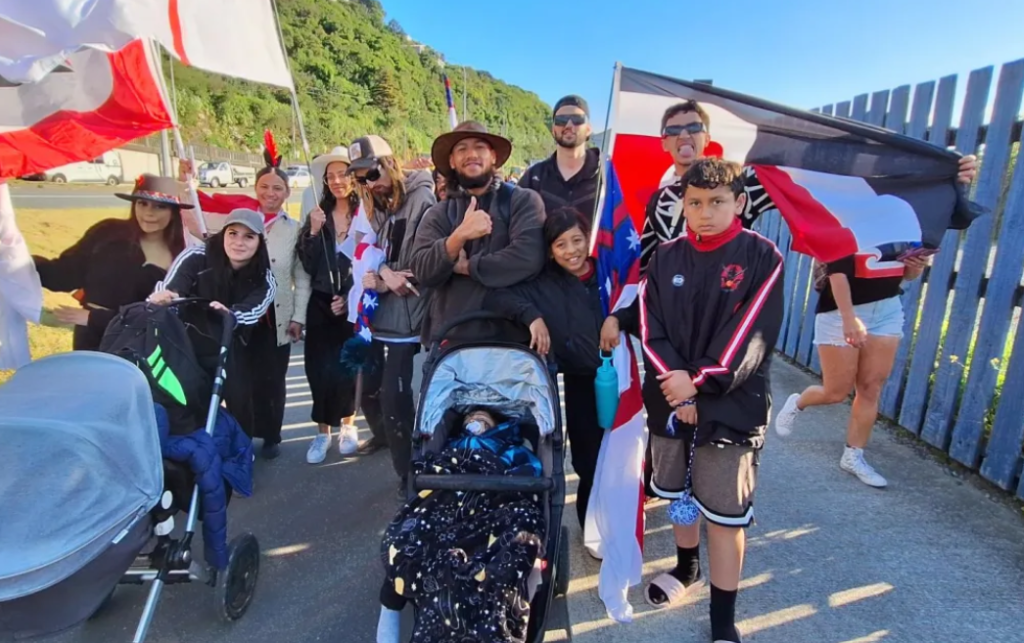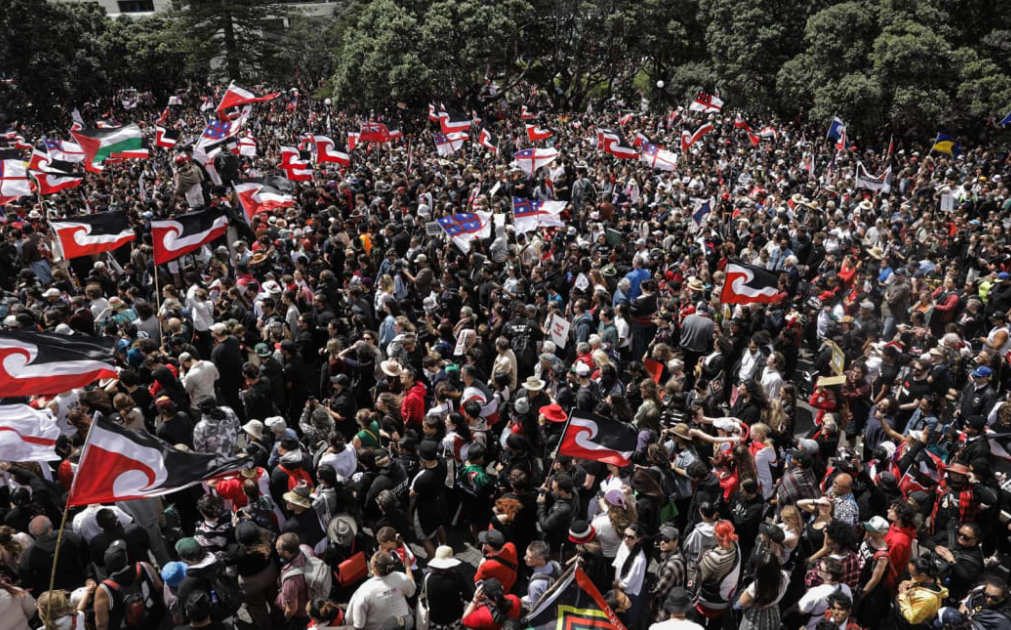
A massive hikoi, leaving Porirua this morning, marched through Wellington’s central business district today, culminating on Parliament grounds as thousands voiced their opposition to the proposed Treaty Principles Bill. Estimates of attendance ranged from 15,000 initially to over 35,000 as the day progressed, with iwi leaders, local officials, and supporters from across the motu joining the protest.
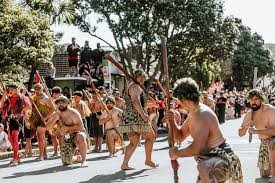

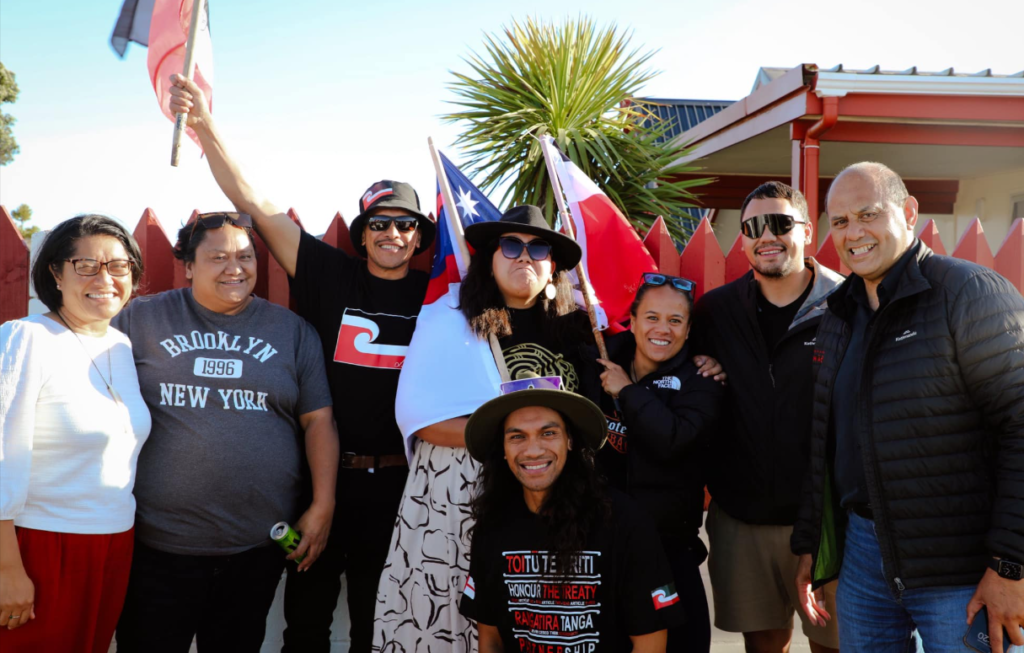
The march, led by iwi leaders and supported by mana whenua, stretched back to Taranaki Street as the first participants arrived at Parliament. Traffic wardens rerouted thousands into surrounding streets as the crowd overwhelmed the grounds. Regional councillor Thomas Nash described the morning as possibly the busiest on the Wellington rail network, with 40,000 people passing through the train station—more than double the usual weekday number.
Ngāti Toa, whose rohe extends across the southern North Island and northern South Island, played a prominent role. Their governing body, Te Rūnanga o Toa Rangatira, joined iwi from across the country to stand united against what they see as a divisive and regressive piece of legislation. “To those who want to divide us, you’re too late … we’re already one people,” says Helmut Modlik, an iwi leader, addressing the crowd at Parliament.
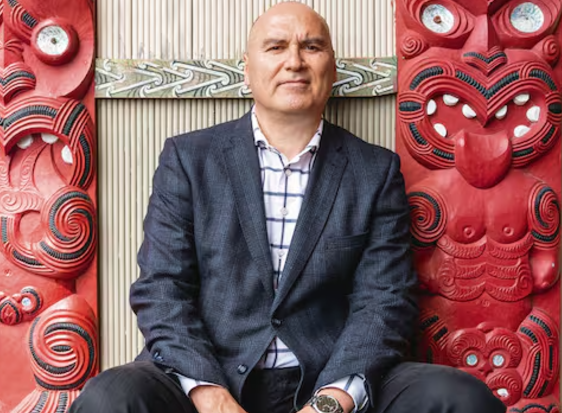

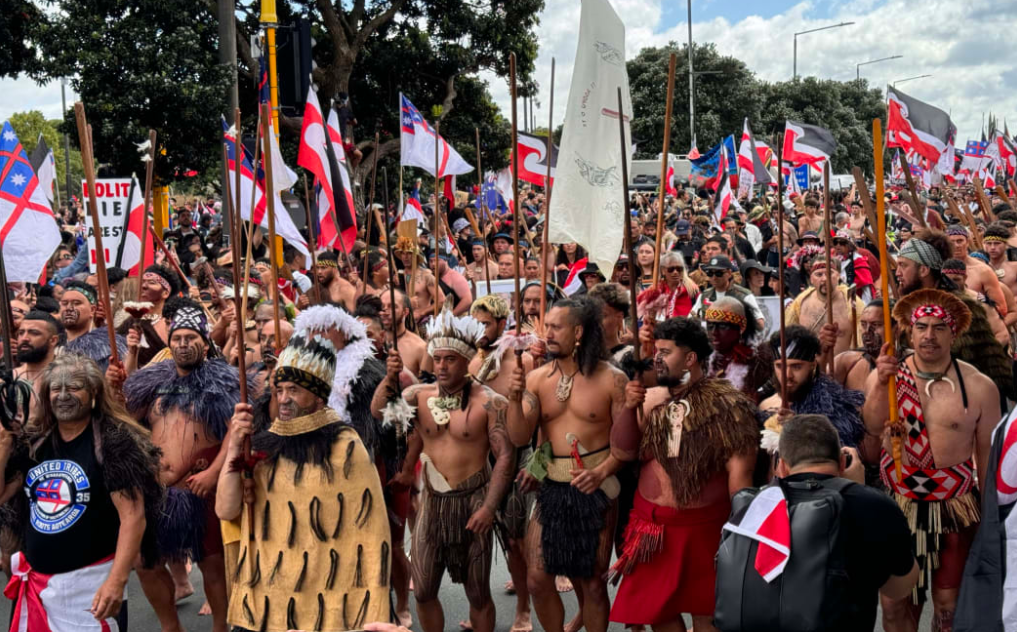
Wellington Mayor Tory Whanau, the city’s first Māori mayor, participated in the march. “It would almost be offensive if I didn’t participate in this,” she says, expressing pride in her city’s support. Whanau, who opposes the Bill, dismissed criticism of her involvement as a public official, pointing to widespread support for her decision.
The hikoi’s message was unequivocal. Hīkoi leader Eru Kapa-Kingi declared, “The Māori nation has been born today. Te Tiriti is forever.” Te Pāti Māori MP Hana-Rawhiti Maipi-Clarke echoed these sentiments, her presence bolstered by her haka in Parliament earlier this month, which gained international attention.
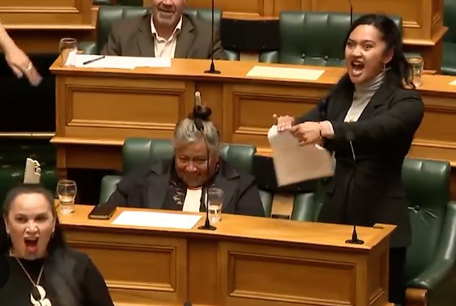
Political responses were mixed. Prime Minister Chris Hipkins confirmed plans to meet with protest leaders, while National Party leader Christopher Luxon declined to engage. ACT Party leader David Seymour, a key proponent of the Treaty Principles Bill, briefly appeared under heavy security but retreated amidst chants of “kill the bill.”
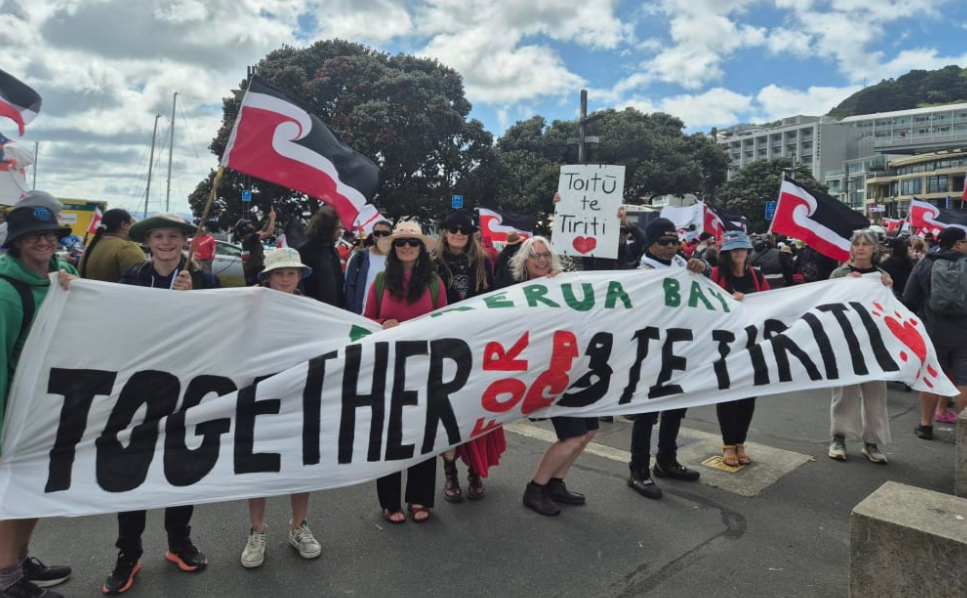
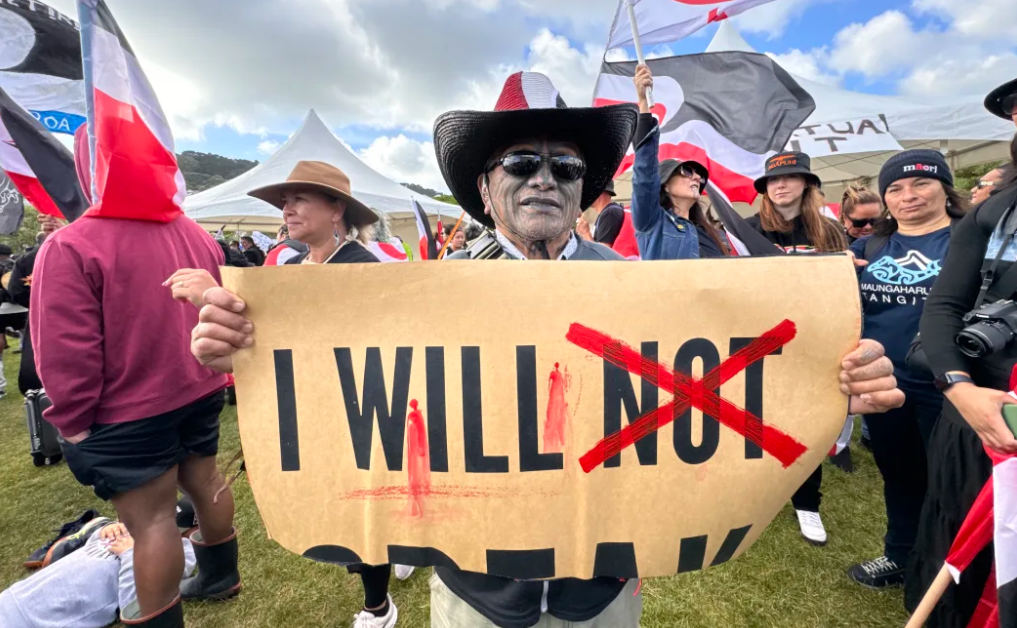
As the speeches concluded, the hikoi solidified its place as one of the most significant public demonstrations in recent years, leaving its mark not only on Parliament’s grounds but also on the political landscape of Aotearoa.
